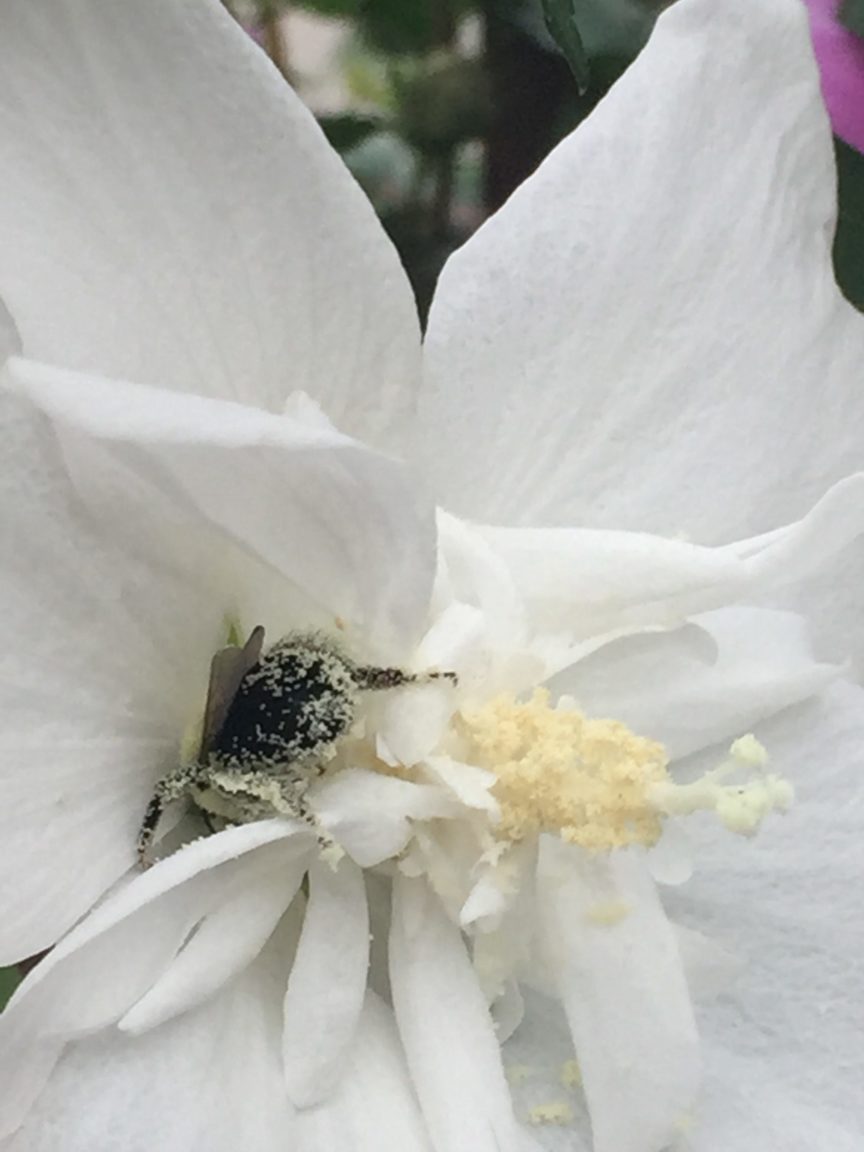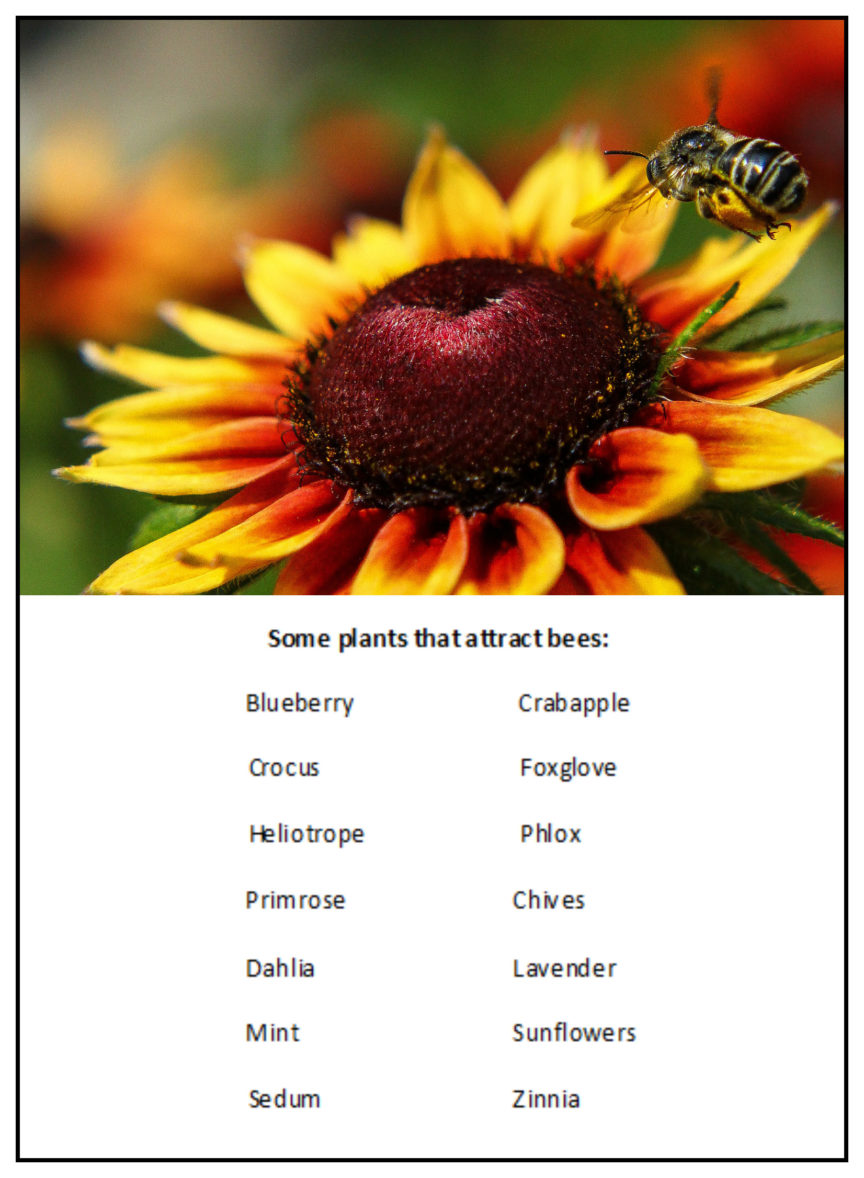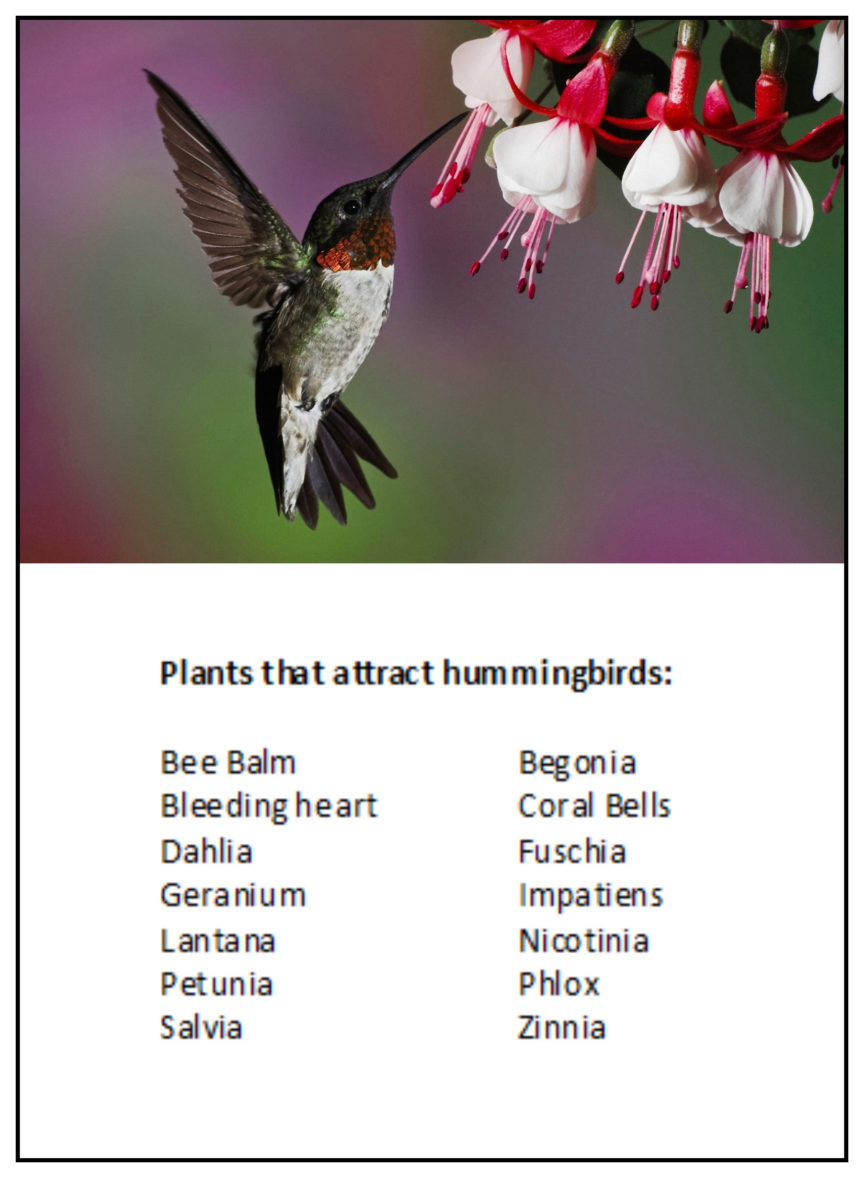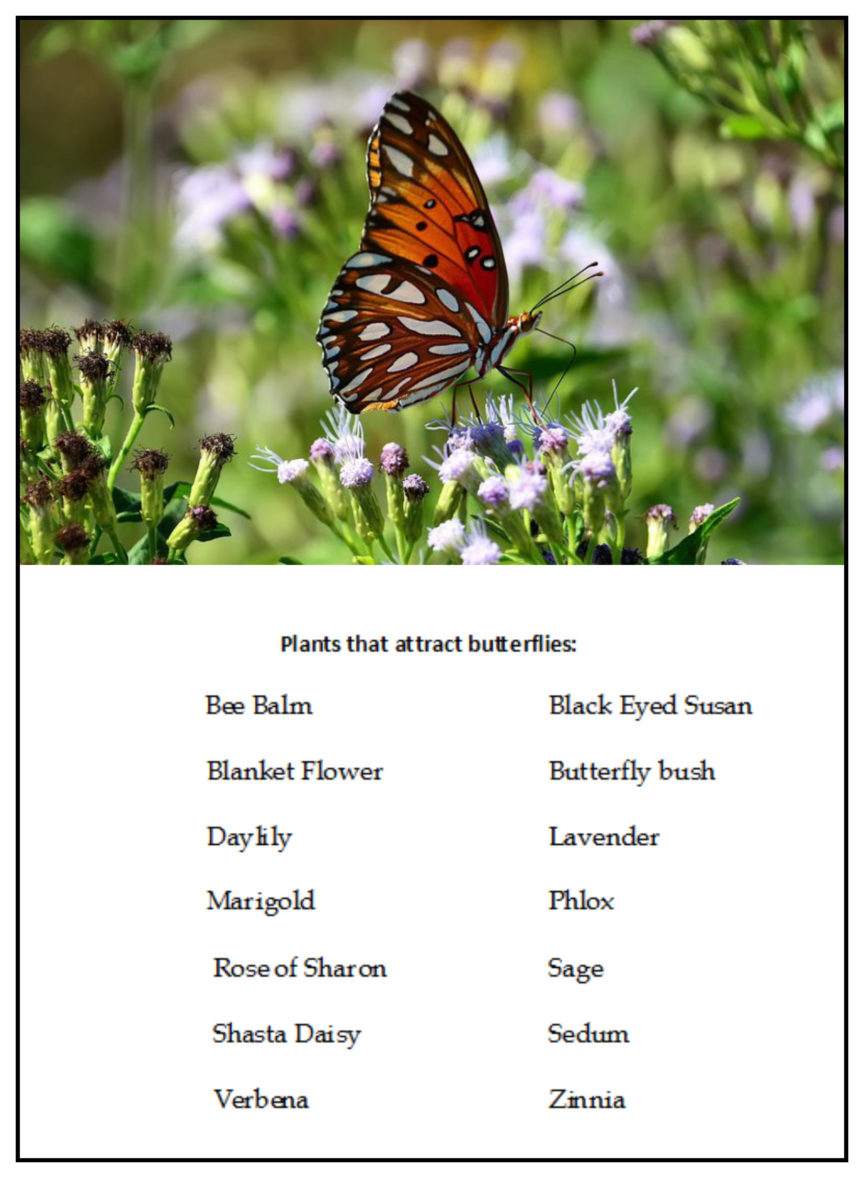How to create a pollinator friendly garden
What may seem like a small contribution — a tiny flower planted in a pot or the ground can actually provide a valuable place for pollinators like hummingbirds, bees and butterflies.
Chances are you’re already taking steps to help pollinators and you may not even know it! Sometimes keeping your yard a little bit messy will give pollinators a sanctuary to live in, especially butterflies who can overwinter as caterpillars.
Planting a variety of plants in your garden that bloom at different times of the season will provide enough nectar and places for eggs to be laid, and will accommodate different preferences of pollinators.
Pollination occurs when pollinators (bees, butterflies, hummingbirds, animals – and even the wind) move pollen from one flower to another. Successful pollination, which may require visits by multiple pollinators to a single flower, results in healthy fruit and fertile seeds, allowing plants to reproduce.
Zinnia, mint and phlox will attract bees and wasps, while hummingbirds feed on red, purple, or orange flowers with lots of nectar, such as bee balm, fuchsia, sage, and honeysuckle.
Top 10 Pollinator Shrubs: https://youtu.be/kqbfJmsTsmw
Bees Hummingbirds Butterflies




